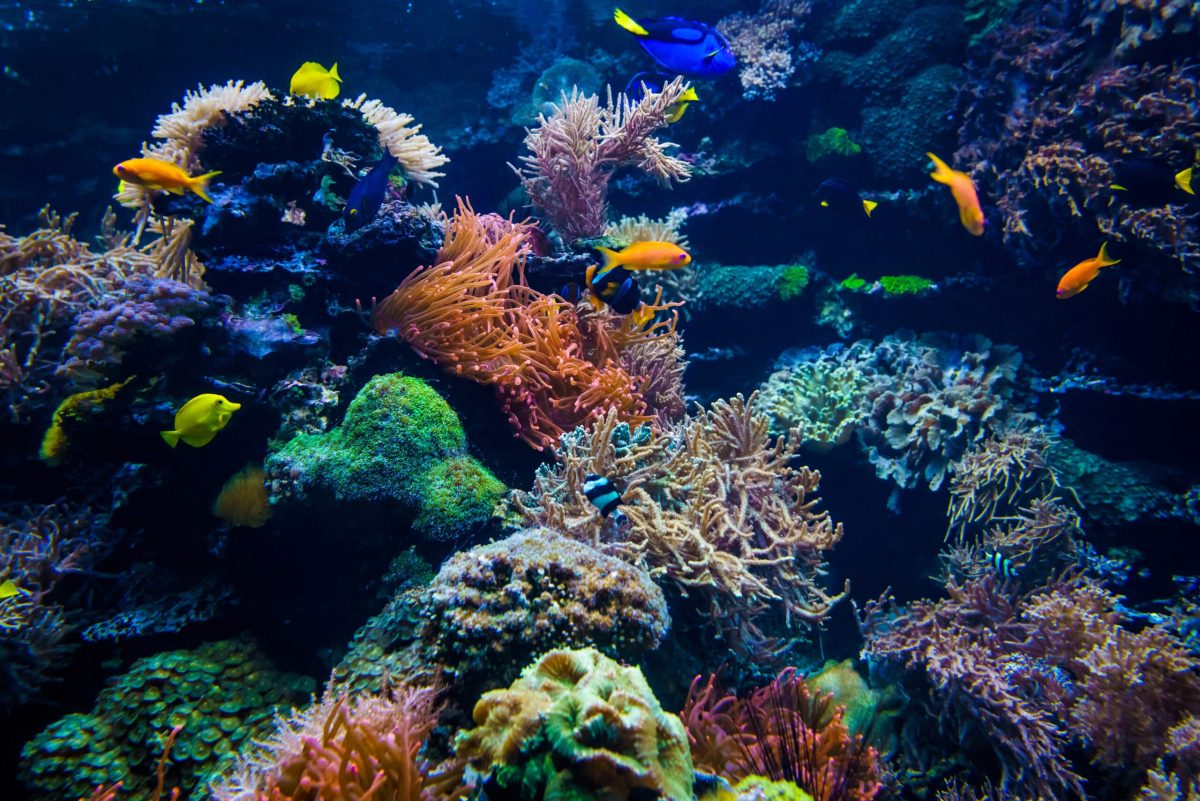Are coral reefs the underwater pharmacies of the 21st century? Many leading oceanographers, researchers and scientists believe so. In just about every corner of a coral reef, miraculous pharmaceuticals can be discovered. In fact, it is estimated that the likelihood of finding a new pharmaceutical product in the ocean, especially among coral reef species, may be 300-400 times more likely than isolating one from a terrestrial ecosystem.
Why are coral reefs so abound in these life-saving substances? Well, the answer lies in the reef ecosystem lifestyle. Many coral reef organisms are slow movers and travel around the reef at a leisurely pace. Others, like corals themselves, cannot move at all and are permanently attached to the reef. These species do not have the luxury to protect themselves by transporting to safety but resort to chemical warfare instead, utilizing an armory of bioactive compounds to avoid predation, fight microbes and prevent overgrowth by other organisms.
Curative coral reef species
Within the coral reef medicine cabinet, you may be surprised to find powerful anti-cancer compounds, sourced from our brainless, somewhat unglamorous friends: the sea sponges. Sea sponges are not only incredible for their astounding water cleaning power and miraculous regeneration capabilities, but also for the life-saving compounds within them. For example, a Caribbean reef sponge was the source of the chemotherapy drug cytarabine, which has proved successful in the treatment of leukemia. Another remarkable sea sponge, H. okadai, was the source of the anticancer drug eribulin which has proven successful in treating breast cancer. So, next time you are swimming near a coral reef, take a moment to respect these deceptively simple organisms for the miraculous curative power they contain!
Let?s now dive into the coral compartment of the marine medicine cabinet. Certain coral species, including sea whips, have been discovered to harbor anti-inflammatory compounds that show promising clinical applications for arthritis and use in skin creams. Beyond this, evidence has suggested specific species of corals contain anticancer, antiviral and neuroprotective compounds.
It is not just sea sponges and corals that are potential sources for new drugs, but other reef species such as bryozoans, tunicates, sea hares and sea snails. Who would have thought you would be turning to the venom of a cone snail for pain relief or thanking a sea hare for Dolastatin 10, an antitumor agent that has shown promising results in the treatments of various forms of cancer!
Sustainably managing our medicine cabinet
One problem with turning to marine organisms and coral reef species for life-saving products is that they?re already facing a myriad of challenges that are threatening their very existence. Before extraction of these invaluable marine species occurs, management and conservation plans must be put in place to protect our amazing sea life. One example of a successful management plan is the sustainable harvesting of natural products in the Bahamas from gorgonian corals. Researchers have been able to obtain sufficient samples over a 15-year period by allowing sufficient time for corals to reproduce and by only harvesting partial clippings of the coral species.
I recently spoke with Dr. Fenical, Director at the Center for Marine Biotechnology and Biomedicine (CMBB) at Scripps Institution of Oceanography. Interestingly, he revealed that a solution to how we can sustainably source natural products from marine species lies in the trillions of microbes that are found in the marine realm. Dr. Fenical realized in his research that ?microorganisms are one hundred thousand times more genetically diverse than macroorganisms and can be used by cultivation to sustainably produce drugs?. If you would like to learn more about the fantastic research at the CMBB, including an exciting project exploring the potential use of marine microbes as a source of antivirals in the fight against COVID-19, be sure to click here!
Preserving Earth?s Precious & Medicinal Marine Life
We have always placed humankind as the hero, attempting to save and protect our ocean and all of its teeming life. It turns out, it is the ocean that is saving us. It is vital we reverse this dynamic and take responsibility as ocean stewards to protect and preserve our marine life. I hope reading this article has provided you with one more reason why each of us should take action to sustain Earth?s most precious resource.
